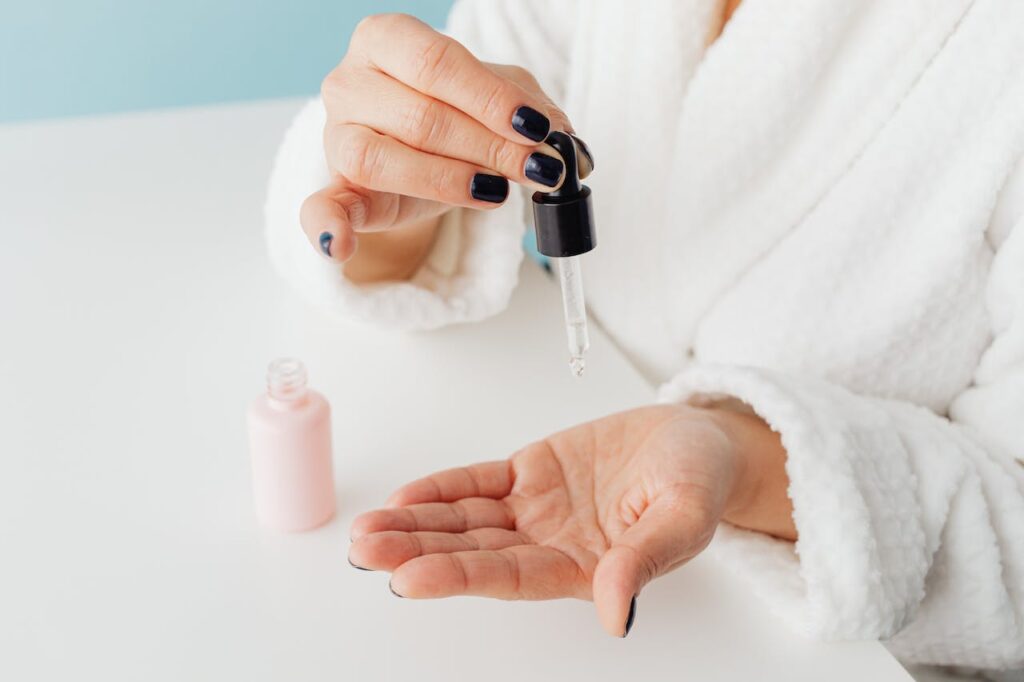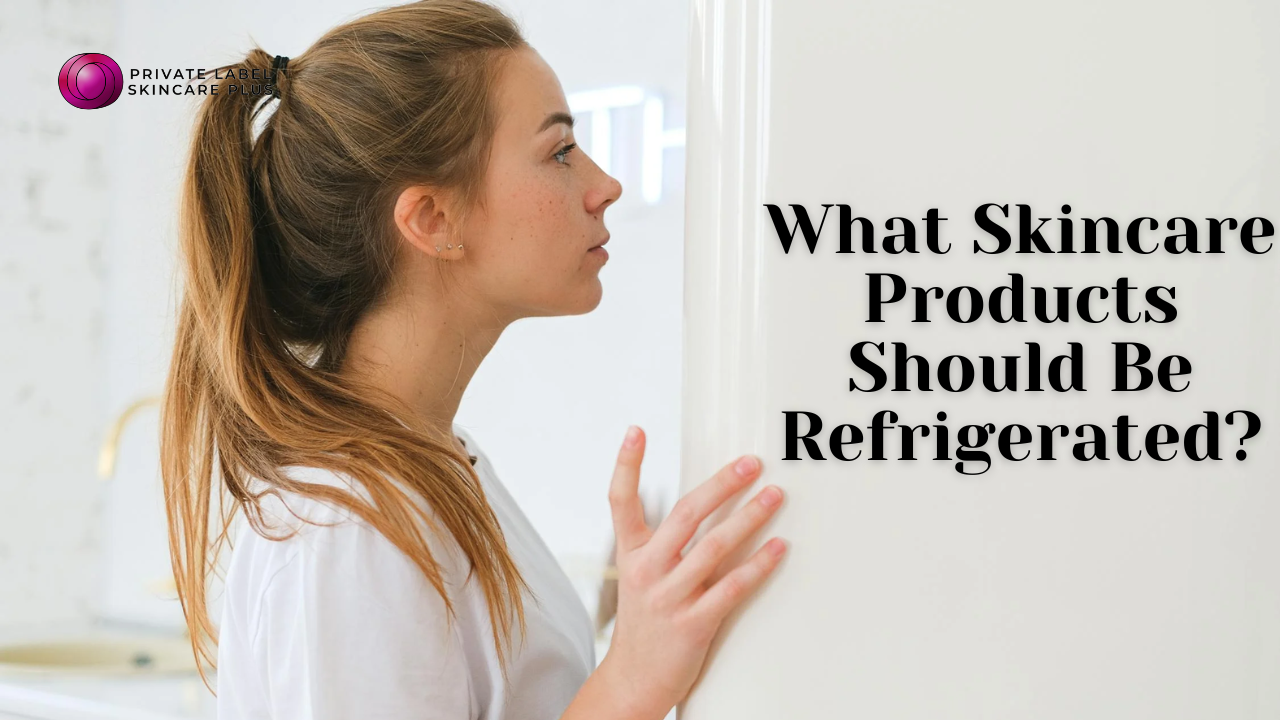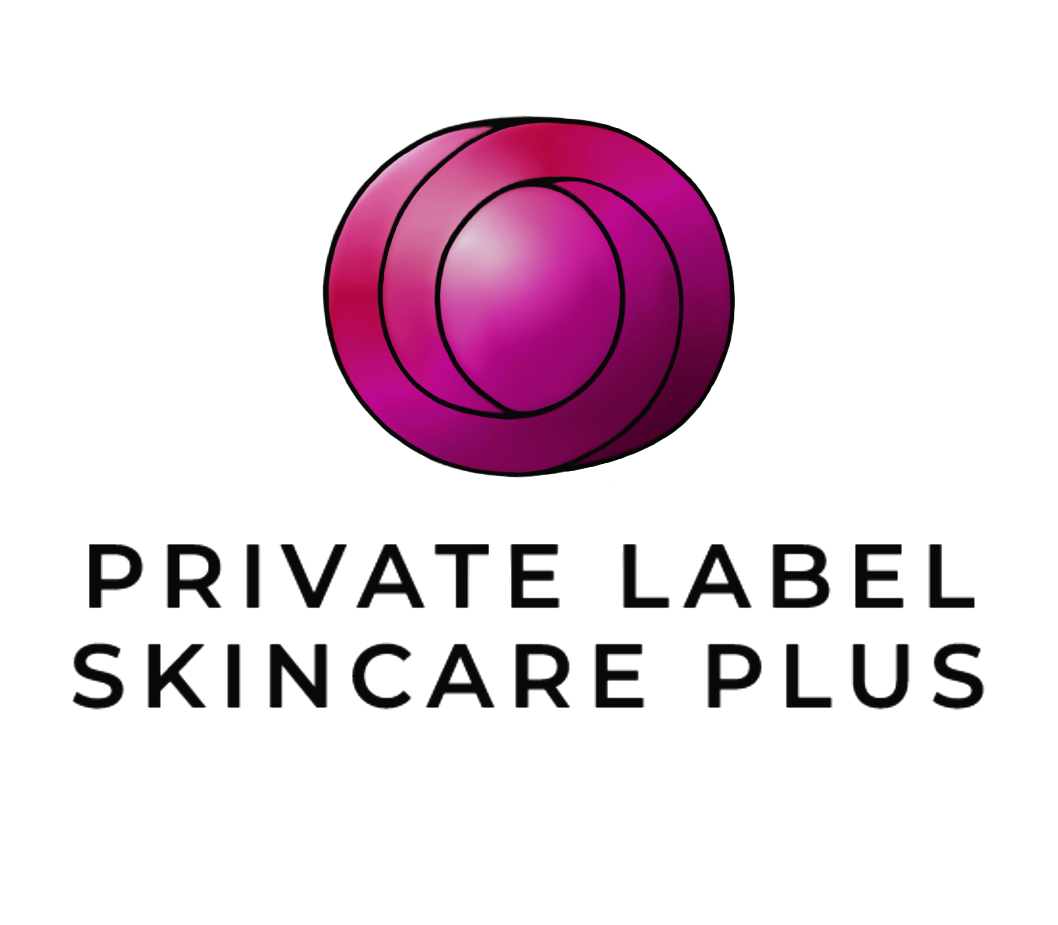As skincare becomes more advanced, many consumers wonder if they should refrigerate their products to maintain their effectiveness. Some products clearly benefit from the cold, while others may not need the chill at all. As a skincare brand, knowing what to recommend to your customers can make all the difference in product performance and customer satisfaction. So, let’s dive into which skincare products should find a place in the fridge and why!
Benefits of Refrigerating Skincare Products
Before we get into the specifics, let’s cover why refrigeration can be so beneficial for certain skincare items. First and foremost, storing products in cooler temperatures can help prolong their shelf life. This is especially important for formulations that contain active ingredients like vitamin C or retinol, which tend to break down faster at room temperature.
Moreover, for customers with sensitive skin, the cooling sensation from chilled skincare products can offer instant relief, reducing puffiness and inflammation. Think about how refreshing a cool face mist feels on a hot day—now imagine that feeling as part of your daily routine. A few degrees cooler can go a long way!
And finally, refrigeration can slow down bacterial growth, which is a huge win, particularly for natural and preservative-free products. For skincare brands offering clean beauty lines, this can be a strong selling point.

Types of Skincare Products That Should Be Refrigerated
Let’s break down exactly which products benefit from refrigeration:
Eye Creams and Gels
Those morning eye bags and dark circles can be tackled more effectively with a chilled eye cream or gel. Ingredients like caffeine or cucumber extract, which are commonly found in eye treatments, perform much better when cold. Refrigerating these products not only feels good but can visibly reduce puffiness in a matter of minutes.
Sheet Masks
If there’s one product that’s practically made for the fridge, it’s sheet masks. Chilling these before use can enhance their calming and hydrating effects, especially if they contain soothing ingredients like aloe vera or hyaluronic acid. For brands selling sheet masks, promoting the added benefit of refrigeration can boost customer satisfaction and make the experience feel more luxurious.
Face Mists
A cooling face mist is already refreshing, but storing it in the fridge takes it to another level. Not only does it make the misting experience feel like a mini spa treatment, but the chilled product can help tighten pores and invigorate the skin. This is a great tip to include in your product packaging or marketing material.
Vitamin C Serums
Vitamin C is a powerhouse ingredient, but it’s also notoriously unstable. Heat and light exposure can cause it to oxidize, turning it brown and making it far less effective. Storing your vitamin C serums in the fridge can help slow this process, preserving its potency for longer. If your private label skincare line includes vitamin C products, this is a crucial recommendation for your customers.
Probiotic Skincare
Probiotics are becoming increasingly popular in skincare, but they require special care to remain effective. Refrigerating probiotic skincare products ensures the live cultures stay active, which is essential for maintaining the skin’s natural balance. If your brand offers probiotic formulations, consider emphasizing this storage tip to maximize results.
Natural and Organic Products
For products without preservatives, refrigeration is a must to prevent bacterial growth and ensure product safety. Think about organic face masks, creams, or serums—these are typically more vulnerable to spoilage. Suggesting that customers refrigerate these items can extend their shelf life and build trust in your brand’s commitment to quality.

Types of Skincare Products That Should NOT Be Refrigerated
While some products thrive in cold storage, not everything belongs in the fridge. Here’s a quick guide to what should stay on the bathroom shelf:
Oil-Based Products
Oils tend to solidify when exposed to cold temperatures, which can alter their texture and make them harder to apply. Products like facial oils or oil-based serums should be stored at room temperature to maintain their consistency and ease of use. When advising your customers, make sure to explain why refrigeration isn’t necessary for these products.
Clay Masks
Clay masks can become dry or too thick when chilled, making them less effective during application. Since clay works best when it can warm up slightly on the skin, it’s best to keep these products out of the fridge. Instead, recommend cool, dry storage to maintain their intended texture.
Retinoids
Retinoids, though powerful, are highly sensitive to both heat and extreme cold. Storing retinoid-based products in the fridge can degrade their potency, which can impact their effectiveness over time. Encourage customers to store these at room temperature and out of direct sunlight to preserve their stability.
How to Store Skincare in the Fridge
If your brand decides to promote the refrigeration of certain skincare products, it’s essential to communicate proper storage methods. Recommend keeping skincare in a dedicated section of the fridge, away from food, to prevent contamination. Ideally, skincare products should be stored at around 39°F (4°C), as colder temperatures could potentially freeze or damage the formulations. A skincare-specific mini fridge can be a great investment for beauty enthusiasts or those looking to maximize product efficacy.
The Role of Private Label Skincare Manufacturers
As a private label skincare brand, partnering with an experienced manufacturer like Private Label Skincare Plus is crucial in ensuring your products remain stable, effective, and safe—whether they need refrigeration or not. When working with us, we guide you through the entire formulation process, helping you determine which products will benefit from cooler storage and ensuring your packaging reflects that.
Whether you’re looking to offer vitamin C serums, probiotic formulations, or natural skincare lines, refrigeration may be a key selling point you can leverage. Our custom formulations are designed with this in mind, allowing you to confidently market products that deliver optimal results when properly stored.
FAQs
- Can all skincare products be refrigerated?
No, not all products need refrigeration. Focus on water-based products or those with sensitive ingredients that benefit from cooler temperatures. - How long should products be refrigerated?
Most skincare products can be stored in the fridge for the duration of their shelf life. However, always check expiration dates and manufacturer guidelines. - What happens if I don’t refrigerate products that need it?
Products like vitamin C serums or probiotic skincare may lose potency more quickly if left unrefrigerated. Encourage customers to follow storage instructions for best results.
Conclusion
Knowing what skincare products should be refrigerated can make a significant difference in product performance and customer satisfaction. By educating your customers on proper storage methods, you can not only extend the shelf life of your products but also enhance their effectiveness. At Private Label Skincare Plus, we specialize in helping brands like yours develop high-quality, stable formulations that deliver results. Reach out to us today to learn how we can support your product development process, including refrigeration-friendly options.


